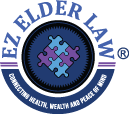In Wilder v. Virginia Hospital Assn., 496 U.S. 498 (1990), the Supreme Court stated: Medicaid is a cooperative federal-state program through which the Federal Government provides financial assistance to States so that they may furnish medical care to needy individuals. § 1396. Although participation in the program is voluntary, participating States must comply with certain […]
Blog
In Georgia Department of Community Health v. Medders, 292 Ga. App. 439, 2008 Ga. App. LEXIS 804 (2008) the Court stated the appellate standard of review as follows: “In addressing this appeal, we are mindful of the narrow scope of judicial review applicable to administrative agency matters. A court cannot “substitute its judgment for that […]

TCA 30-2-310 was amended effective April 7, 2021. Tennessee Code Annotated, Section 30-2-310, is amended by adding the following as new subsection (c): (c) Notwithstanding subsections (a) and (b), § 71-5-116, and §§ 30-2-306 – 30-2-309: (1) If the bureau of TennCare receives a notice to creditors as defined in § 30-2-306(b) within twelve (12) […]

The general rule under 42 U.S. Code § 1396p(c)(1) is that any transfer for less than fair market value results in assessment of a transfer of resources penalty. There are, however, exceptions to the general rule. Subsection (c)(2)(A)(iv) is one of those exceptions and it provides that no penalty can be assessed if a home […]
Trust corpus found to be countable ( R.I. Super.) ————————————- Jeanne M. Biagetti established a revocable trust in 1998. According to counsel, it became irrevocable in 2001 when she became unable to manage her own financial affairs. When She applied for Medicaid in 2009, however, the trust was found to be a countable resource and […]

As a general rule, if a nursing home resident is eligible for Medicaid, then no one else can be sued for their nursing home bills. Specifically, 42 C.F.R. § 483.15(a)(3) provides: “The facility must not request or require a third party guarantee of payment to the facility as a condition of admission or expedited admission, […]
Cooperative federalism is not license to re-write clear federal rules (Co. App.) Ruth Koehler sued the Department after it terminated her benefits under its Medicaid Home and Community Based Services for the Elderly, Blind and Disabled (HCBS) program. Ruth, an elderly disabled woman, received HCBS as an alternative to nursing home care. Her husband resided […]
Hogberg v. State Dep’t of Soc. Servs., 2009 Conn. Super. LEXIS 50 (2009). Lynda Hogberg was admitted to a nursing home in September, 2004. Two years later, in September 2006, her husband, a community spouse, filed a Medicaid application. The application was denied in March, 2007. In April, 2007, he filed an appeal. On May […]
James v. Richman, 465 F. Supp. 2d 395 (M.D. Pa. 2006). Robert and Josephine James were married when Robert went to the nursing home. A resource assessment was done and Medicaid determined they had $278,343 in available resources. To reduce their resources, Josephine purchased a $250,000 single premium immediate irrevocable annuity from General Electric Assurance […]
The Deficit Reduction Act of 2005, Pub. L. No. 109-171 (Effective date February 8, 2006). The Deficit Reduction Act of 2005 (DRA) changed the Medicaid eligibility rules significantly. Most of the changes are (or will be) codified at 42 U.S.C. § 1396p. DRA lengthened the look-back from 36 to 60 months; changed the start date […]

